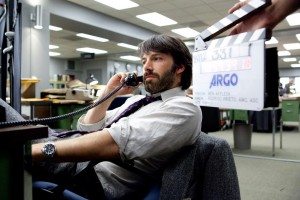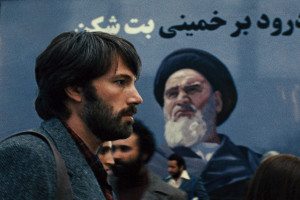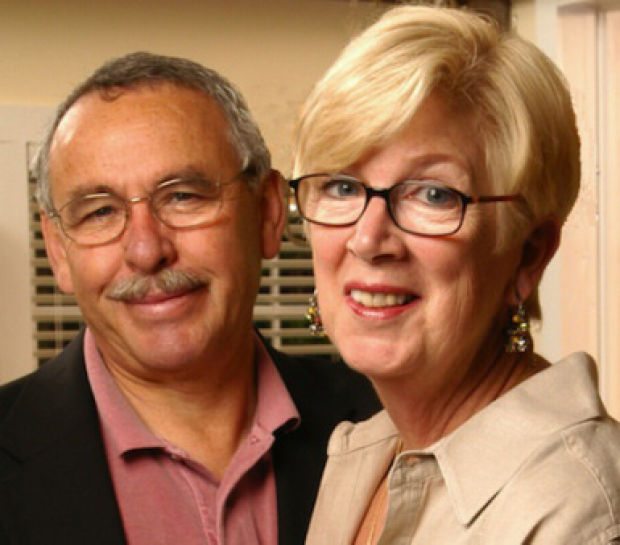A Conversation with Argo’s Tony and Jonna Mendez
[dropcap]T[/dropcap]he University of Warwick book festival returned to the Warwick Arts Centre for its second edition over the weekend of the 17th and 18th of May. Among the many writers who spoke at the event was Tony Mendez, the former CIA operative who masterminded the “Canadian Caper”, an exfiltration mission to save the lives of US Embassy workers during the violent fallout of the Iranian Revolution. The operation involved setting up a fake Hollywood shoot for a film called Argo as a cover for the Embassy staff. After years of silence necessitated by the classified nature of the incident, Mr. Mendez was able to write a book about the mission – one which was then adapted into the Oscar-winning film Argo.
 Although Mr. Mendez is probably best known for his involvement in the mission – and now for Ben Affleck’s portrayal of him – he has had a prolific artistic career since retiring from the CIA. Prior to his book on the “Canadian Caper”, he wrote two other non-fiction books based on his experiences, the first of which was hailed as a landmark memoir. He has also served as member of the Board of Directors for the International Spy Museum.
Although Mr. Mendez is probably best known for his involvement in the mission – and now for Ben Affleck’s portrayal of him – he has had a prolific artistic career since retiring from the CIA. Prior to his book on the “Canadian Caper”, he wrote two other non-fiction books based on his experiences, the first of which was hailed as a landmark memoir. He has also served as member of the Board of Directors for the International Spy Museum.
The Boar was fortunate enough to have had the opportunity to sit down with Mr. Mendez and his wife Jonna Mendez, also a former CIA operative, an author, and his artistic collaborator, for a brief chat.
[divider]
The interview contains minor spoilers for the books and the film.
Ibtisam Ahmed: Your book Argo: How the CIA and Hollywood Pulled Off the Most Audacious Rescue in History (2012) is a very faithful account of what happened in Iran, but the film Argo took some artistic licenses. Is there a line that can be drawn with regards to taking liberties?
Tony Mendez: Filmmaking is different from book-making, so there are different considerations to be made. We actually wrote the book after we found out the film was being produced, so there was a conscious understanding of how to approach the story.
Jonna Mendez: Tony got involved with the Hollywood side of things during his work at the CIA and that connection has stayed with us. He is an artist and therefore has more of an understanding of the creative aspect of it all.
TM: Ben Affleck said, “We’re not making history, we’re not making a documentary.” We knew what the film was going to be like.
JM: We did put our foot down for some of the details though. They wanted to portray him as a drunkard in the opening sequence, to give him a “flaw” to overcome, but we said no.
TM: [Laughing] No! My grandkids are going to watch this!
IA: With that creative nature in mind, did you approach your writing as being part of a specific genre? And did any other books influence you?
TM: I would say that I consider my work to be along the lines of historical writing or memoirs. We definitely wanted to make the product very real. There is drama in what happened, that comes naturally, but the aim was not to exaggerate anything. So I kept books by historians in mind because that was the tone I wanted to hit.
JM: The film took the dramatic side more seriously, obviously. The whole ending scene on the tarmac, that didn’t happen.
TM: For us on the mission, the biggest fear was having someone come up to us and tap us on the shoulder, which makes for great writing but not so much great cinema.
 JM: But the film did affect us deeply. We watched it at the AFI [American Film Institute], at a special screening, and I remember that he was really touched by it afterwards. So, that was a good thing. And Ben dedicated the film to Tony’s son Ian [who passed away in 2010], which was a wonderful thing.
JM: But the film did affect us deeply. We watched it at the AFI [American Film Institute], at a special screening, and I remember that he was really touched by it afterwards. So, that was a good thing. And Ben dedicated the film to Tony’s son Ian [who passed away in 2010], which was a wonderful thing.
TM: We – the Mendez family – we actually appear in one of the scenes together. It’s quick, but you should try spotting that.
IA: You must have had a lot of memorable experiences as part of your CIA careers, but was there anything special from your work on Argo the artistic piece?
JM: We never imagined the film would win the Oscar! It was a surreal experience.
TM: There was a feeling on the night that Steven Spielberg would win [with Lincoln], so were weren’t expecting that.
JM: When we were attending the awards, the hotel we stayed at made little chocolate desserts for each of the Best Picture nominees and we ate all of them except one before the ceremony.
TM: So when we got back, there was the dessert for Argo still left, and we had won.
JM: Then we ate that too.
IA: Your three books are all non-fiction, but have you thought about dabbling in any other genres?
TM: I haven’t, but Jonna has a fiction manuscript in the works.
JM: It hasn’t been picked up yet, and it is a completely different experience. It is actually a true story but it was never resolved, so I get to give it my own ending which is where the fiction comes in.
IA: If you were to place the events of Argo in a fictional literary universe, where would you choose?
TM: That’s a new one! We’ll have to get back to you on that, but Iran at the time was such a unique situation, so I don’t know if we can really put it anywhere else.
JM: In many ways, the Shah [whose removal from power was the goal of the Revolution] was such a perfect villain. That is difficult
[divider]
[pullquote style=”left” quote=”dark”]They are not cunning, calculating spies; they are writers – or, more accurately, artists.[/pullquote] To be perfectly honest, meeting Mr. and Mrs. Mendez did not go according to my expectations. The film Argo accurately portrays his intense passion and creativity, but does not manage to live up to the soft-spoken thoughtfulness and humility that comes through the minute you first see him. And meeting Mrs. Mendez, an unexpected bonus, is nothing if not an extremely friendly and honest with her opinions. They clearly appreciate every unique moment they have had and live to share these experiences through their imagination. Interviewing them was an immense pleasure.

Comments